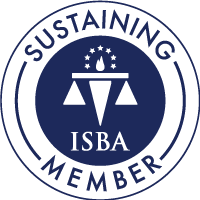Common Misconceptions about Mediation in Family Law Cases
From the high-profile divorces of Hollywood’s elite down to the kitchen-table negotiations of the everyday person, family law issues can impact anyone. Mediation has emerged as a pivotal tool to help both sides come to an amicable resolution. There are many misconceptions about the mediation process, but the truth remains that mediation often offers a universally accessible avenue for conflict resolution, one that can help those going through a divorce navigate the complex emotional and financial intricacies with discretion and dignity.
Yet, some still pause before considering the use of mediation for their divorce, often due to the misconceptions we noted below. Here, we discuss and dispel five of the most common misconceptions about mediation so you can have better information to help determine if mediation is the right process for you and your family.
Misconception 1: Mediation is just like going to court
Mediation is a private, voluntary process, not a public court proceeding. During mediation, a mediator facilitates communication and negotiation, rather than making decisions for you. It is a collaborative approach focused on finding mutually acceptable solutions.
Misconception 2: A mediator will decide the outcome
Mediators do not issue rulings or impose decisions like a judge. Their role is to guide the discussion and help parties reach their own agreement. The parties themselves create the decisions made during mediation.
Misconception 3: Mediation is not suitable for high-conflict cases
Even in high-conflict situations, mediation can be effective with a skilled mediator. Mediation can reduce hostility and improve communication for future interactions.
Parties can still have legal representation during mediation to protect their interests.
Misconception 4: Mediation will not affect the legal process
Agreements reached in mediation are legally binding if properly documented and filed. A successful mediation will eliminate the need for a trial or further court intervention on the issues resolved at mediation.
Mediation can also set a precedent for amicable negotiation in future disputes. This is particularly helpful for families with children and disagreements over child rearing can occur throughout the parental relationship.
Misconception 5: Mediation cannot handle complex financial issues
Mediation is well-suited for cases with complex assets, as it allows for flexible and creative solutions. This is because parties can bring in financial advisors, accountants, or other experts to assist during mediation and the parties have more ability to craft outside the box solutions that a Court could not order.
The fact that mediation is confidential can make its use even more appealing for those with complex finances because it can protect sensitive financial information from becoming public record.
Mediation is a valuable tool in family law cases, especially those involving significant assets. It offers a flexible, confidential, and often more efficient path to resolving disputes compared to traditional litigation. Dispelling these misconceptions allows individuals to make informed decisions about their legal strategies.
Cross Glazier Reed Burroughs, PC is ready and willing to help you with your mediation needs. If you have additional questions or would like to learn more, please contact our office.


